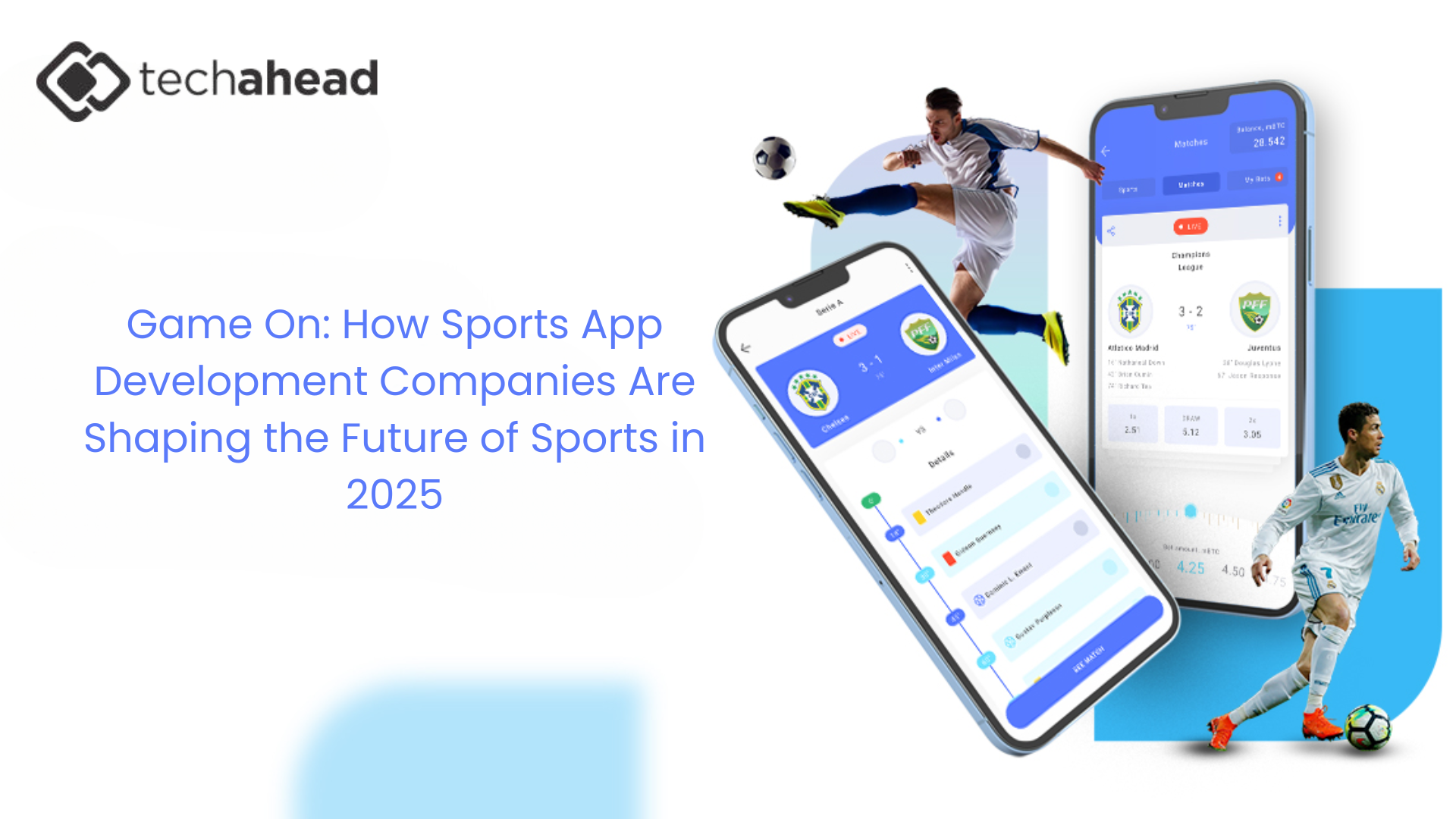The sports industry is undergoing a technological revolution. Fans, athletes, and coaches alike are embracing innovations that were once only imaginable in sci-fi. At the forefront of this transformation are sports app development company, creating digital platforms that enhance performance, engagement, and accessibility.
From AI-driven analytics to immersive virtual experiences and real-time fan interaction, these apps are redefining how sports are played, followed, and understood. Interestingly, the strategies used by sports app development company often mirror those in education technology—just as education app development company are personalizing learning journeys, sports apps are personalizing athletic and fan experiences.
In 2025, the intersection of technology and sports is not only shaping games—it’s reshaping entire careers and communities. Let’s explore the trends driving this evolution.
AI and Machine Learning: Smarter Insights for Athletes and Fans
Artificial Intelligence (AI) and Machine Learning (ML) have become essential in modern sports apps. Sports app development companies leverage these technologies to analyze vast datasets, providing insights that were previously unattainable.
For athletes, AI algorithms track performance metrics such as speed, heart rate, endurance, and movement efficiency. This data informs personalized training plans, prevents injuries, and enhances overall performance. For example, a runner using an AI-powered app can receive daily adjustments to training schedules based on real-time performance and recovery metrics.
For fans, AI is used to provide personalized content, match predictions, and interactive features. Platforms now offer customized highlight reels, interactive statistics, and notifications tailored to individual preferences—creating engagement levels that rival live attendance. The crossover with education app development companies is clear: just as AI personalizes student learning paths, it personalizes athletic growth and fan experience.
Real-Time Analytics: Transforming Coaching and Training
Real-time analytics have become a game-changer in sports. Sports app development companies are integrating live data tracking tools into mobile apps, allowing coaches and athletes to make instant, data-informed decisions.
In training sessions, wearables communicate with apps to provide real-time feedback. Coaches can adjust exercises on the fly, preventing overtraining and improving technique. During live matches, performance analytics allow for strategic substitutions, tactical shifts, and performance monitoring—all delivered seamlessly through mobile platforms.
This mirrors trends in education apps, where real-time analytics enable teachers to adjust lesson plans immediately based on student engagement and comprehension. Both industries benefit from actionable insights delivered directly through mobile platforms.
Immersive Experiences: AR and VR in Sports Apps
Augmented Reality (AR) and Virtual Reality (VR) are no longer novelties—they are integral features in sports apps. Sports app development companies are creating immersive experiences that transform how fans interact with games and how athletes train.
For fans, AR overlays provide live stats during matches, interactive replays, and even virtual stadium tours. VR enables fans to feel like they are on the field or in the stands, regardless of their physical location.
Athletes, on the other hand, use VR simulations to practice plays, visualize strategies, and refine skills in a controlled, safe environment. Interestingly, education app development companies are leveraging the same AR/VR principles for virtual labs, historical site visits, and skill simulations, highlighting the shared power of immersive technology across industries.
Gamification and Community Engagement
Gamification isn’t just for education—it’s thriving in sports apps as well. By integrating points, badges, leaderboards, and challenges, sports app development companies keep users engaged and motivated. Fantasy leagues, virtual competitions, and skill-based challenges create communities where athletes and fans interact continuously.
These features also enhance long-term retention and loyalty. Apps that successfully gamify athletic progress or fan interaction see higher daily engagement rates and more active user communities. This mirrors trends in education, where gamified modules boost student motivation and learning outcomes.
Wearables and IoT Integration
The Internet of Things (IoT) has expanded the capabilities of sports apps. Wearable devices—such as smartwatches, heart-rate monitors, and motion sensors—communicate seamlessly with mobile platforms. Sports app development companies use IoT to collect precise performance data, track health metrics, and even monitor sleep and recovery cycles.
This integration provides athletes with a comprehensive overview of their training and wellness, allowing for precise adjustments to routines. Similarly, education app development companies are beginning to integrate wearable and IoT devices to monitor student engagement in physical education programs and promote health-conscious learning environments.
The Rise of E-Sports and Digital Competition
E-sports is one of the fastest-growing sectors in the sports industry. Sports app development company are creating platforms that track digital competitions, live-stream tournaments, and offer real-time analytics for both players and fans.
These apps merge community building, competition, and entertainment into a single platform, mirroring the interactive and personalized approach seen in educational apps. The growth of digital sports highlights how technology-driven experiences can transform traditional industries, making participation more accessible and engaging.
Conclusion
The sports landscape in 2025 is dynamic, data-driven, and immersive. Sports app development companies are at the center of this transformation, delivering solutions that enhance athlete performance, fan engagement, and community interaction.
The parallels with education app development companies are striking: both industries are leveraging AI, AR/VR, gamification, and real-time analytics to personalize experiences, improve outcomes, and foster engagement. As technology continues to advance, sports apps will become even more sophisticated, merging physical performance, digital interactivity, and global connectivity into a seamless ecosystem.
By embracing these innovations, athletes, fans, and institutions are not just keeping pace—they are shaping the future of sports, one app at a time.



